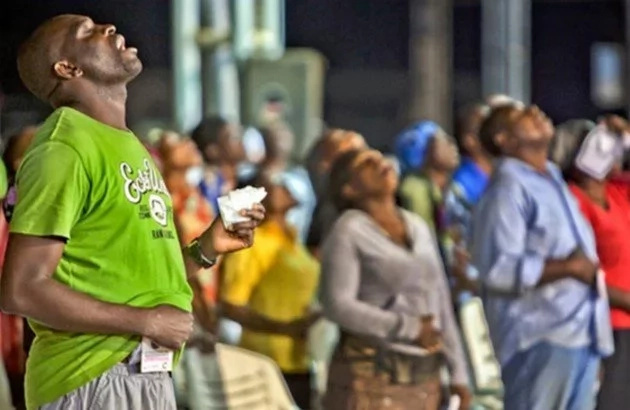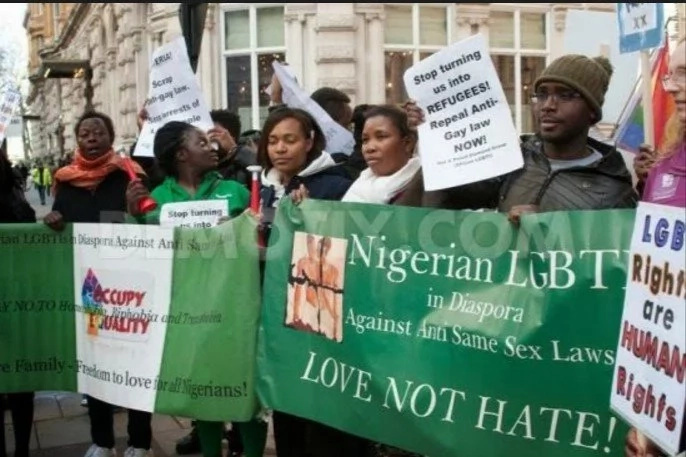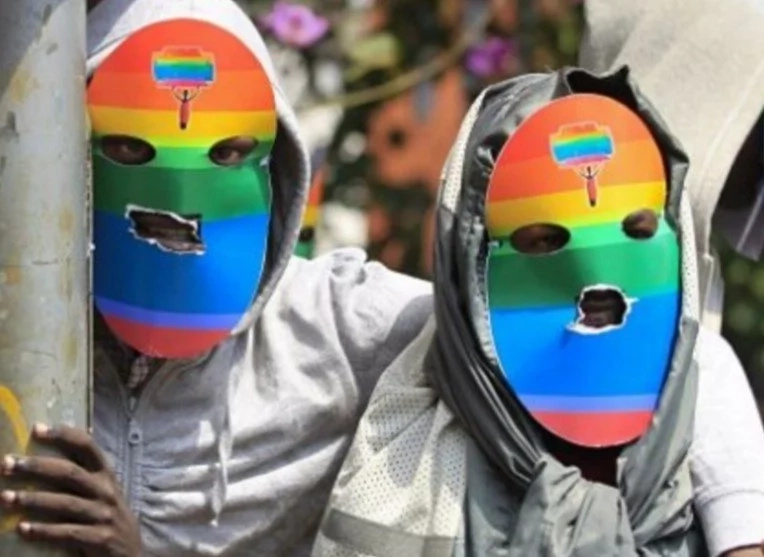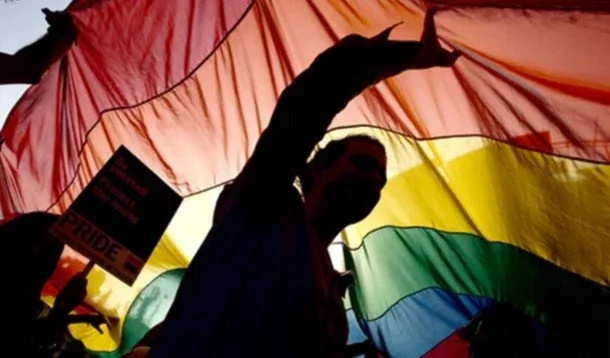- The LGBTI community in Nigeria faces tough times
- Many people look at religion for help
- Deliverance and exorcism sessions are very common
People
from the LGBTI community in Nigeria find it very difficult to talk
about their experiences with s*xuality and being Christian.
Bree, who is a lesbian, has tried different approaches to try to change her tendency towards liking other women, even exorcism. “[It] was over in 15 minutes but nothing changed,” she said.

People at a deliverance.
Cases
like Bree’s are very common, and many people have tried to arrange
their lives in their own ways, looking to reconcile faith and same-s*x
attraction.
Bree (it is not her real name) has manged
to find some peace, accepting the fact that she is both lesbian and
Christian. She grew up in a conservative community, which did not accept
anything related to the LGBTI community. She went through a series of
unstable and abusive relationships, which only made her believe her
s*xuality was wrong, and that she would eventually be punished for it.

Protesters
A pastor at a Pentecostal church service back in 2009 asked all the women if they wanted “to be delivered from the spirit of lesbianism”. She and her girlfriend decided to approach him.
The
pastor laid hands on both women. Bree said it was an intense session.
They both thought they had been “cured” of lesbianism and broke up, but
got back together again a week later, exhausted from acting “healed.”
“I finally had a conversation with God saying that if this is who I am, ‘you made me, then you fix me'," she said, adding that she felt “so tired of feeling rejected by God. I just wanted peace.”
Deliverances
normally include forming a circle around the “ill” person, dousing him
or her in anointing oil and holy water. A crowd of people start praying
continuously, until a quiet calm comes. Then a hologram glides through
the person’s body, who gets up and professing his or her salvation, as
portrayed in a film that was recently produced.
On the other hand, Bree said her own deliverance was pretty normal.

The
Initiative for Equal Rights (TIERS) is an organisation based in Lagos
that helps the LGBTQI (lesbian, gay, bis*xual, transgender, queer and
inters*x) community fight for its rights and s*xual health. Its
executive director, Olumide Makanjuola, says that one of the most
straining facts for people is the need to “perform”, act as if they are
straight.
Makanjuola claims he has met many
LGBTQI people dealing with acute anxiety and depression, from trying to
act straight, after receiving deliverance or conversion therapies.
“Exorcism reduces people. They feel so incomplete and powerless,” Makanjuola says, adding that
“we run a religious system that is full of condemnation as opposed to understanding, which is very problematic.”
On his part, psychiatrist Gbonju Abiri states that “Nigeria
is deeply ingrained in culture and religious beliefs, and we are not
able to deal with diversity just yet as we should. Our practice
encourages that we should put health above all first.”

Nigeria
has outlawed gay marriage through the Same S*x Marriage Prohibition
Act. People can get up to 14 years in prison for divergent s*xual
orientation and gender identity expressions. It was signed in 2014 into
law by President Goodluck Jonathan.
Exhausted
from feeling depressed and condemned, Bree started deepening her study
of the intersection between faith and s*xuality, looking at the works of
theologians for example. She is working towards earning a professional
counselling qualification to help others. This brave woman has found
acceptance inside herself, she hopes to help others do the same.








0 comments:
Post a Comment